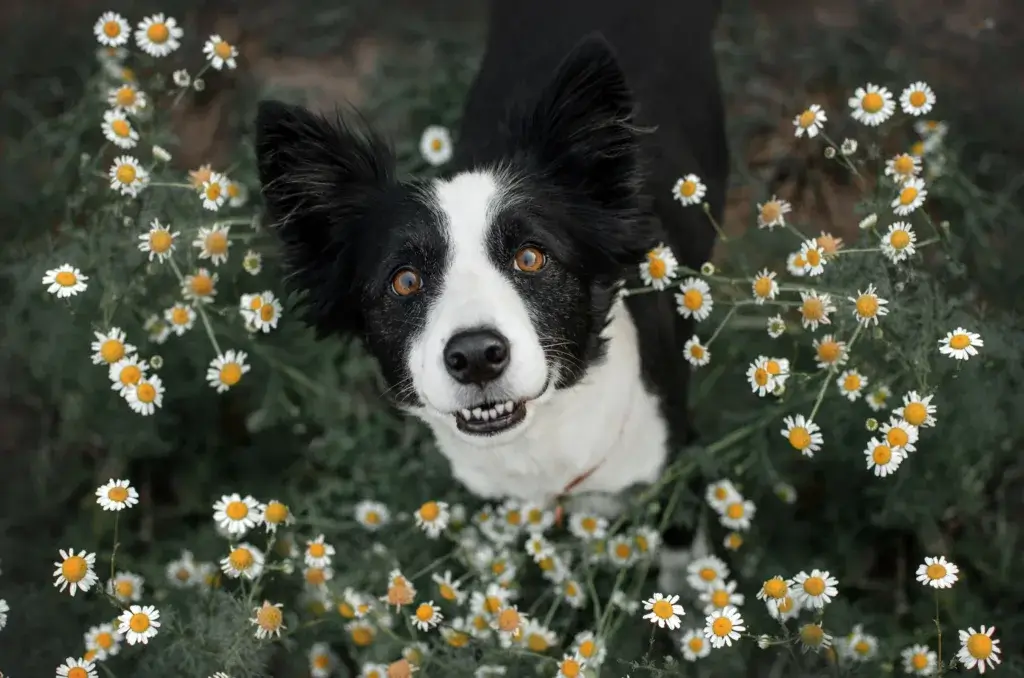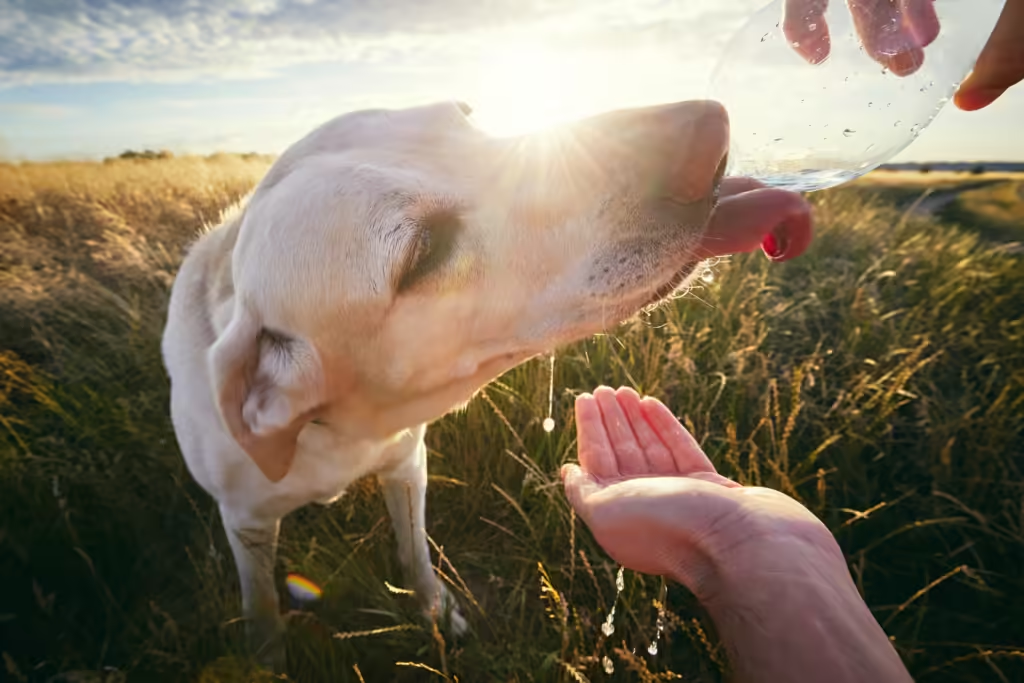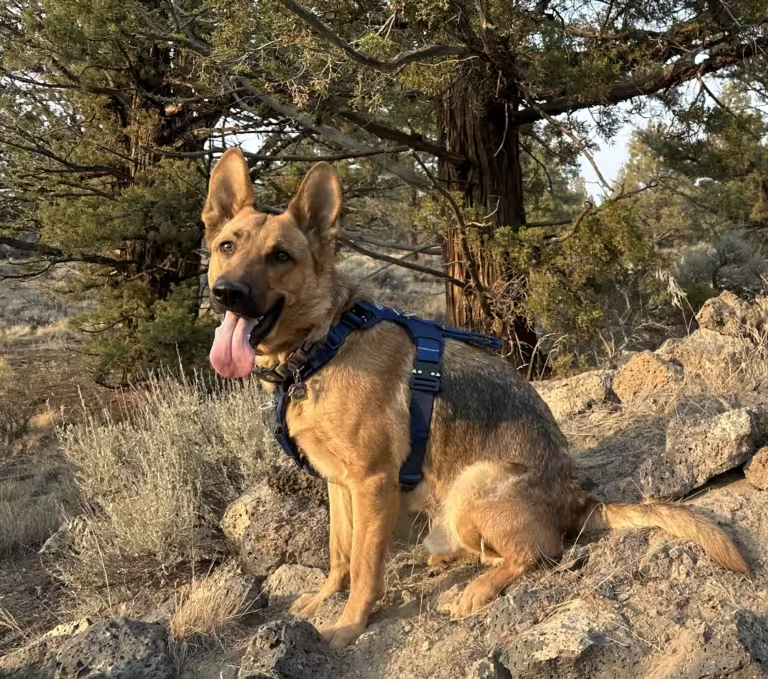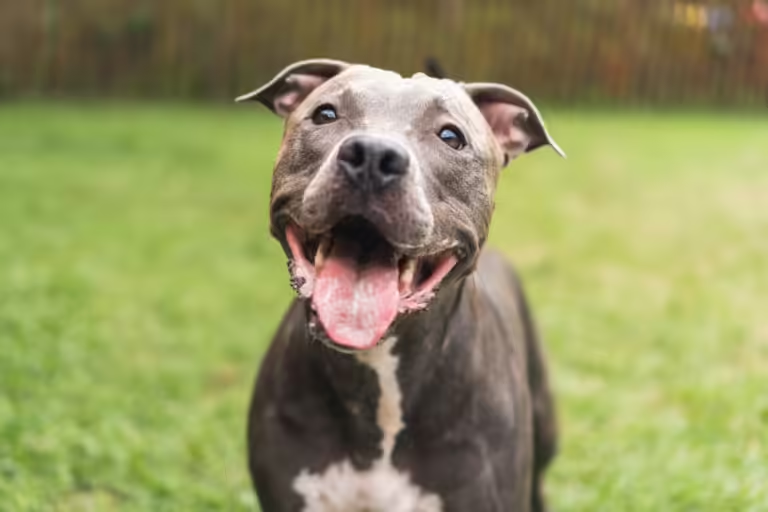Dogs and Seasonal Allergies: Sniffle-Free Tips
Spring’s here, and if you’re a dog parent like me, you probably love watching your pup explore the changing world. Except, of course, when the sneezing and scratching start up.
Just like us, dogs can get hit with seasonal allergies. I notice my dog scratching a lot, sneezing, or sometimes even getting ear infections – classic signs that something in the air is bothering her.
Tree, grass, and weed pollens are usually the main troublemakers. These allergens love to make themselves known on my dog’s skin and sometimes in other not-so-fun ways.

Managing my dog’s allergies has turned into a bit of a seasonal ritual. I juggle treatments, tweak our routines, and keep an eye out for any weird changes in her mood or habits.
If I catch the symptoms early, I can usually keep things from getting out of control. Whether it’s picking the right meds, making lifestyle tweaks, or just boosting her immune system, my goal is always to let my pup enjoy spring without all the itching and sniffles.
Key Takeaways
- Dogs can get seasonal allergies too – think scratching, sneezing, and all that jazz. (Learn more)
- Managing allergies means mixing treatments with daily habits to keep your dog’s tail wagging.
- Spotting changes in your dog’s behavior helps you jump in early and keep things under control.
Understanding Seasonal Allergies in Dogs
If you’ve ever seen your dog furiously scratching after a romp at the park, you might be seeing seasonal allergies in action. Why do some pups go from happy-go-lucky to scratch-crazy overnight?
What Are Seasonal Allergies?
Seasonal allergies are just as annoying for dogs as they are for us. While we might grab a tissue, our dogs get the urge to itch.
Their immune systems go a little haywire when they meet certain outdoor allergens, mostly during particular times of year.
Types of Seasonal Allergens
Here are the usual suspects:
- Pollen: Trees, weeds, and grasses throw pollen around like confetti, especially in spring and fall.
- Mold: Loves damp spots and can sneak up on you.
- Dust: Even a little dust floating around can set things off, especially when the weather heats up.
Recognizing the Signs and Symptoms
Dogs can’t exactly tell us they’re miserable, so we have to watch for clues:
Low Energy: If your usually-bouncy buddy seems down, allergies could be the culprit.
Itching: Scratching, chewing, or licking – sometimes obsessively.
Sneezing: A classic move to get rid of invisible nose ticklers.
Runny Eyes: Watery eyes aren’t always from emotional moments.
Diagnosis and Testing

When my dog starts acting off, I start looking for answers as quickly as possible. Figuring out what’s causing all the itching and sneezing is the first step.
Allergy Testing for Dogs
If I suspect allergies, I talk to my vet about testing. Usually, we start with a blood test to check for reactions to different allergens.
But there’s also intradermal skin testing, which vets call the gold standard. The vet injects tiny amounts of common allergens under the skin and looks for a reaction – like a little red bump.
Identifying Specific Allergens
Tracking down the exact trigger feels a bit like detective work. If my dog’s tests show environmental allergies, pollen or mold are often to blame.
Once we know the villain, allergen-specific immunotherapy can help. It’s kind of like a vaccine that trains the immune system to relax. It takes a few months, but the long-term relief is worth the wait.
Treatment Options

When allergy season hits, here’s how I help my dog get through the worst of it.
Medications and Antihistamines
Medications and antihistamines can be lifesavers. Sometimes the vet suggests an over-the-counter option like Benadryl to ease the symptoms.
But not every med works for every dog, and the right dose is super important. Don’t just guess! Always check with your vet first.
- Zyrtec: Good for skin allergies and most pups handle it fine.
- Apoquel: Works quickly and is a favorite among vets for itch relief.
Supplements and Natural Remedies
If you like the natural route, supplements can help too. I add omega-3 fatty acids to my dog’s food; they’re known for fighting inflammation and keeping skin healthy.
- Omega-3 Supplements: Fish oil is my go-to for soothing skin.
- Probiotics: A happy gut can mean a happier, less itchy dog.
Immunotherapy and Allergy Shots
For long-term relief, immunotherapy and allergy shots are worth considering.
- Allergy Shots: Tailored to my dog’s specific triggers.
- Cost and Time: It’s a bit of a commitment, but seeing my dog comfortable makes it worthwhile.
Daily Management and Prevention

A little prevention goes a long way with allergies. Building habits to keep allergens at bay helps my dog stay comfy all year.
Creating an Allergen-Free Environment
To cut down on allergens at home, I wash my dog’s bedding in hot water every week. My HEPA vacuum gets a workout, especially on rugs and floors.
Using a dehumidifier in damp spots helps keep mold away. Air purifiers also pull a lot of junk out of the air, making things easier for sensitive noses.
Bathing and Skin Care
Bath time is a must for itchy pups. I use an oatmeal shampoo to calm my dog’s skin and try to stick to a weekly schedule.
Afterwards, I towel her off and give her a gentle brush to keep her fur in shape. I always wipe her paws after walks – it’s a quick way to get rid of allergens and spot any irritation early.
Dietary Adjustments
What my dog eats can make a difference. I add fatty acid supplements to her meals, which helps her skin stay healthy and her coat look awesome.
I avoid foods that might trigger allergies and stick to high-quality, hypoallergenic choices. Sometimes even a small change in diet means fewer sneezes and more happy zoomies.
Understanding Dog Behavior with Allergies
When our pups start to show signs of allergies, they’re not just trying to give us a hard time – they’re usually pretty uncomfortable. Recognizing these behaviors can be key to getting them the relief they need.
Compulsive Scratching and Licking
You know how it goes, sometimes you just gotta itch! And dogs are no different, especially when allergies strike, turning them into these little scratching machines.
It’s hard not to notice when your dog constantly scratches behind their ears or licks their paws. It’s like they’ve got this itch that no amount of scratching can soothe.
Watch your pup for signs of relentless scratching, particularly around the ears, groin, and paws; these areas can truly drive them up the wall.
Changes in Activity and Mood
Ever had one of those days where you just feel off? Guess what, our whiskered pals get the blues too, especially when they’re feeling itchy and scratchy.
If I were in their shoes – err, paws – I might be less inclined to fetch and more likely to sulk in the corner.
Look out for shifts in usual patterns, like if your normally bouncy buddy becomes a bit of a couch potato or shows less enthusiasm for playtime.
Mood changes like these could be a sign that your pooch is dealing with the discomfort of allergies.
Keep an eye on irritation around the face, muzzle, and toes, and you’ll be helping them find their happy place again in no time.
Supporting Your Dog’s Immune System
Taking care of my dog’s immune system feels a bit like lining up dominoes. If one thing’s off, the whole setup can tumble.
I try to focus on immune-boosting habits and regular vet visits to keep my dog in top shape.
Immune-Boosting Strategies
- Diet: Just like us, dogs need a balanced diet. I make sure my pup gets foods rich in essential nutrients that support immune health.
- Omega-3 fatty acids are a big help for reducing allergy-related inflammation.
- Supplements: Sometimes I add probiotics or antioxidants, especially if allergies flare up. Vets often recommend these to support the immune system.
- Exercise: Keeping my dog active isn’t just good for their waistline – regular walks and play boost their immunity too.
- Stress reduction: Dogs get stressed, and it can really knock their immune system down. I’ve got a playlist of chill tunes for my pup, and we unwind together. Sounds silly but I swear she likes it.
Importance of Regular Veterinary Care
As my dog gets older, regular check-ups matter even more. Chronic stuff like ear infections might point to a deeper issue, like a weakened immune system.
- Regular Check-Ups: I never skip a vet visit. These trips catch things like chronic infections or the need for new injections or meds.
- Vaccinations and Preventatives: I stay on top of vaccines and preventatives, always following my vet’s advice.
- Open Dialogue with the Vet: If I spot anything weird, like nonstop scratching, I bring it up right away. No shame in asking questions.
Recognizing Secondary Conditions

When our dogs deal with seasonal allergies, it’s like they can’t catch a break. We’ve got to watch for extra troubles that tag along.
I’m talking about secondary conditions that sneak up on them like uninvited guests at a doggie dinner party.
Skin Infections and Dermatitis
Call me a watchful guardian, because I’m always on the lookout for skin infections and atopic dermatitisin dogs dealing with allergies. If my pooch starts showing redness and inflamed skin, or begins that relentless scratching, it’s a red flag.
That’s when I brace myself for a possible battle with allergic dermatitis.
- Symptoms to Spot:
- Red, inflamed patches
- Intense scratching or licking
- Possible sores or hair loss
It’s our job to help keep their skin clear, and sometimes that means a trip to the vet.
I’ve had success with this product if I catch it early enough. Otherwise, to the vet we go.
Medicated Spray, 8oz Easy to Use Spray for Dogs & Cats Helps Alleviate Sensitive Skin, Scratching, and Licking of Coat (1 Pack)
Gastrointestinal Issues Related to Allergies
Allergies aren’t just about itchy skin, they can mess with your pup’s tummy, too. If I see my dog coughing after a romp outside or dealing with vomiting and diarrhea, allergies might be behind it.
Digestive upset can haunt them like a ghost in the night if we’re not careful. Quick action and a vet visit can help turn tummy troubles around.
- Telltale Tummy Troubles:
- Coughing after playtime
- Sudden vomiting
- Unexpected diarrhea sprints
Let’s be the super sleuths our pups need, spotting these sneaky issues and helping them feel better.
Tailoring Care to Your Dog’s Needs

Every pup is unique, especially when it comes to battling those pesky seasonal allergies. From the changing seasons to breed-specific tricks, let’s zero in on taming flare-ups and building up the skin barrier!
Adjusting to Seasonal Changes
Just like us, our furry friends sense when the seasons shift – hello, spring! It’s crucial to tweak your care routine as pollen starts floating around.
Here’s a quick checklist to help keep allergens at bay:
- Keep track of pollen counts: When they’re high, keep your dog indoors more.
- Regular baths: Use hypoallergenic shampoo to wash away allergens.
- Pet-friendly wipes: After walks, gently wipe their paws to get rid of pollen hitchhikers.
Customizing Treatment Based on Breed
Now, let’s talk about how different breeds might need different care:
- Thick-coated breeds: Huskies, retrievers, and other fluffballs can trap more allergens. They need frequent brushing and sometimes even specialized allergy meds.
- Short-coated breeds: These pups might need doggy moisturizers to strengthen their skin barrier and keep flare-ups at bay.
Remember, you know your dog best. Watch how they react as the seasons change and adjust your routine. And honestly? Your vet is the best teammate for figuring out a game plan.
Frequently Asked Questions

Watching your furry friend struggle with seasonal allergies is rough. I’ve pulled together a list of frequently asked questions to help you get through the snuffles and itches of allergy season.
What are the common symptoms of seasonal allergies in dogs?
Sneezing, itching, and watery eyes are the big ones. You might spot your pup scratching more or nibbling at their paws.
It’s not fun for them, that’s for sure. If you see these common symptoms, it might be time to prep for allergy season.
Can you recommend any home remedies to alleviate my dog’s seasonal allergies?
Absolutely! Regular baths with hypoallergenic shampoo can soothe irritated skin.
Rinsing them off after outdoor play helps keep allergens away. Omega-3 fatty acids from fish oil supplements can also do wonders for their skin health.
What are the best treatments for respiratory allergies in dogs?
If your pup gets stuffy or sneezy, air purifiers are a game-changer. They pull allergens out of your home’s air.
Your vet might recommend antihistamines or prescribe corticosteroids to help your dog breathe easier.
How can I stop my dog’s allergy symptoms immediately?
Honestly, a trip to the vet is the fastest way to get relief. They can provide fast-acting meds or injections.
Keeping the windows closed and air filters clean also helps keep symptoms under control.
Which is more suitable for treating my dog’s allergies: Zyrtec or Benadryl?
Both Zyrtec and Benadryl can help, but they’re not one-size-fits-all. Benadryl is great for quick relief, while Zyrtec works well for long-term control.
Always check with your vet before giving your dog any medication. Better safe than sorry, right?
How can I reduce the amount of pollen in my yard to help my dog’s seasonal allergies?
Here’s a green thumb tip: pick low-pollen plants for your garden. Keep your grass cut short – seriously, it helps more than you’d think.
Honestly, a sprinkler works wonders. Give the lawn a quick spray before playtime to knock pollen out of the air and off the grass, so less of it ends up clinging to your dog’s fur.









